Book Club is a monthly series from Speedy Ortiz’s Sadie Dupuis, exploring the literature that inspires some of our favorite musicians. Whether it’s a music biography that got them through the slog of tour, the poetry collection that eked into their most poignant lyrics, or the novel that sparked a rock opera, we’ll get to the bottom of it so you can add it to the top of your book stack. This month, we speak to Santi White, the imaginative and futuristic artist best known for her music as Santigold.
Santi White weaves a seamless web of captivating influences into her complexly glorious pop as Santigold, with her erudite love of punk, breakbeat, new wave and dancehall informing four singularly voiced albums and two aesthetically broad mixtapes. Santigold’s one-of-a-kind visuals—from costumes to videos to choreography—allude to White’s historical appreciation for cinema, modern art, and choreography; as a student of both music and African American studies during her time at Wesleyan University, White’s long term devotion to learning has long shaped her work. But now that she’s a parent of three, including twin toddlers, she’s found her reading time dwindling the past few years. “I used to read on tour a lot, and it was great. Things go in phases, and the last few years have been that I’ve had little kids, so no time. But I think I’ll get to read again pretty soon,” she predicts over the phone.
Pretty soon seems to be here already, if the influences on Santigold’s newest record are any indication. Spirituals, the follow-up to 2016’s 99¢, is out Sept. 9 on her Little Jerk Records; ”I loved the idea of calling it Spirituals because it touched on the idea of Negro spirituals, which were songs that served the purpose of getting Black people through the un-get-throughable,” she said in a statement announcing the album, also noting that the writing process marked a re-centering of artmaking after a period of creative block.
Along with replenishing her visionary fire, Spirituals ushered in White’s return to reading. While recording, she spent five months living in a cabin in Canada—and with a 20-minute commute to and from her sessions, White found a new way into literature via audiobooks. “I’ve worked in my back house for years, so I don’t go anywhere or drive far. The idea that I’d have 40 minutes a day to listen to books was amazing,” she tells me. Among the many reads that inspired the latest Santigold are The Autobiography of My Mother by Jamaica Kincaid and Adé: A Love Story by Rebecca Walker—which led White to reading Black, White & Jewish by the same author in a physical edition. “But I have so many more I’m trying to read!” she laughs with excitement.
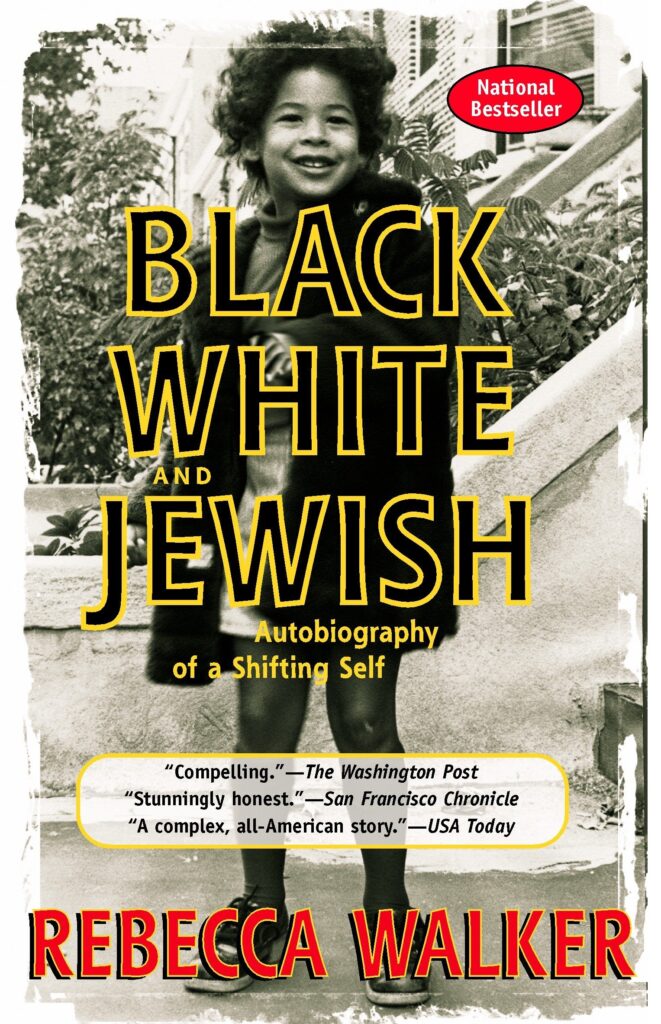
More deep reading is certainly on her horizon, as White hints that she’s currently researching for a multi-generational memoir she plans to write about her own family’s Mississippi roots. Calling me from her home in Los Angeles—the native Philadelphian relocated there in 2017, after a few decades going hard in Brooklyn—White dips into her personal library several times, reminding herself and me of favorites past and present. One book that’s missing from the collection is I’ll Never Write My Memoirs, the contradictorily- and self-referentially-titled Grace Jones autobiography from 2015. “People have been telling me that I need to read her book, and I forgot about it. Now I really really want to read it,” she says. Why the sudden rush? “I just met Grace Jones two weeks ago and it was the best ever,” White gushes, still in seeming disbelief over her latest hangout with a hero.
SPIN: Growing up, what were your favorite books?
Santigold: When I was starting to read novels by myself, I was really into Tiger Eyes by Judy Blume, and these books by Lois Duncan—all these books about astral projection and mental telepathy. I was, like, eight, and I was immediately into that! There was one called Stranger with My Face which was very dark. These twins were separated at birth, and one learned to astral project and showed up at the other’s house, then she jumped in her body, then she tried to kill her! It was crazy! I’m telling you this, super excitedly, from forty years later. I remember being very excited about the fact that books could be this fun.
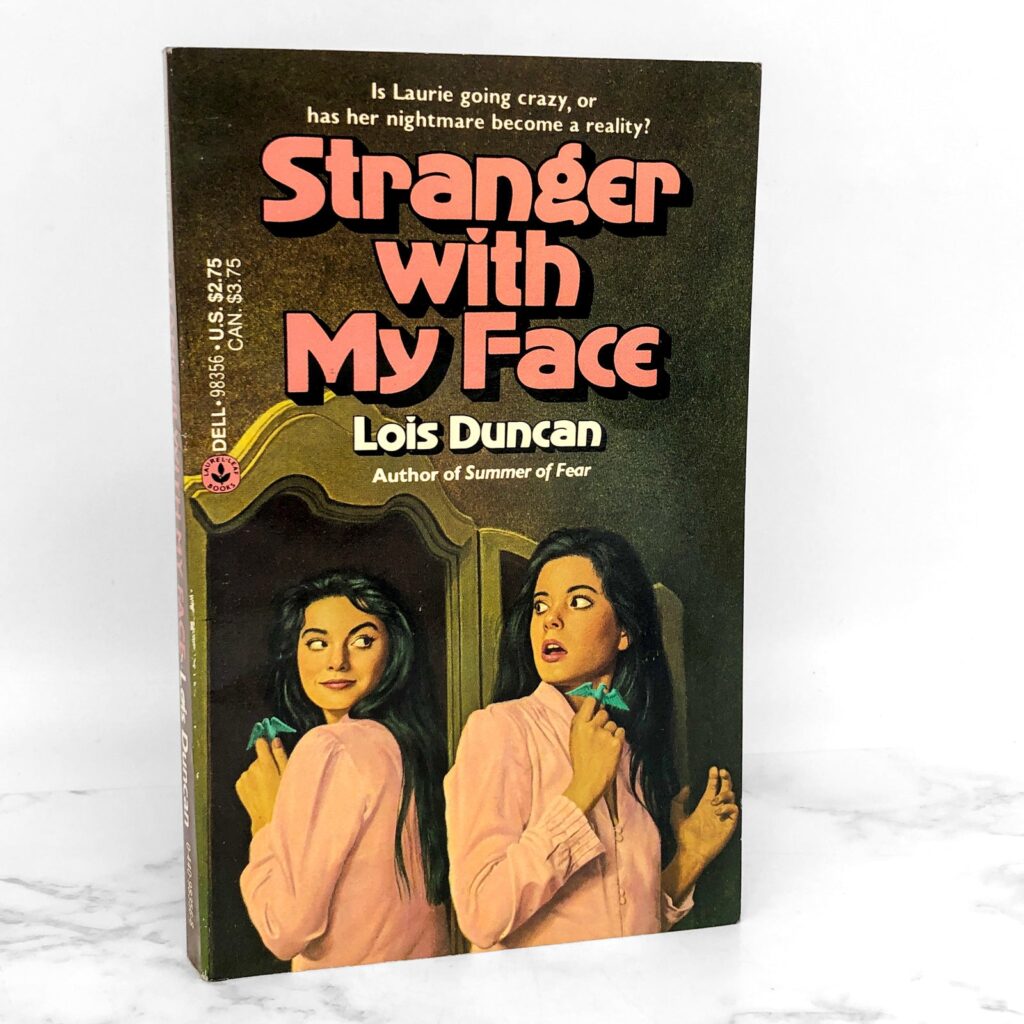
I read so many great things in school. The classics: Shakespeare, Zora Neale Hurston, a bunch of Toni Morrison. I remember really liking All the King’s Men [by Robert Penn Warren], about dirty politics, and The Catcher in the Rye. I read Our Town [by Thornton Wilder] and was moved by that play. I learned about poetry from reading stuff like that—the power of words.
You were writing your own lyrics and poems as a pretty young kid.
I always did write poetry as a kid, ever since I started writing. I would write raps and poems and I was really emotional, even when I got to be a teenager. I liked Kurt Cobain’s and Morrissey’s lyrics, which were so angsty—I should say, I don’t like Morrissey, I like the Smiths. It’s totally different. [Laughs.] But I loved Morrissey’s lyrics, which were so dark and sad. I was really into Joni Mitchell’s lyrics, which helped me get into writing. And rap, which was poetic.
I wanted to ask about your taste in poetry, in part because I’m a huge fan of your sister Simone White’s poems.
Aw, really? In my sister’s poetry, the words she crafts are so beautiful. She’s almost making the words on a page like a painting.
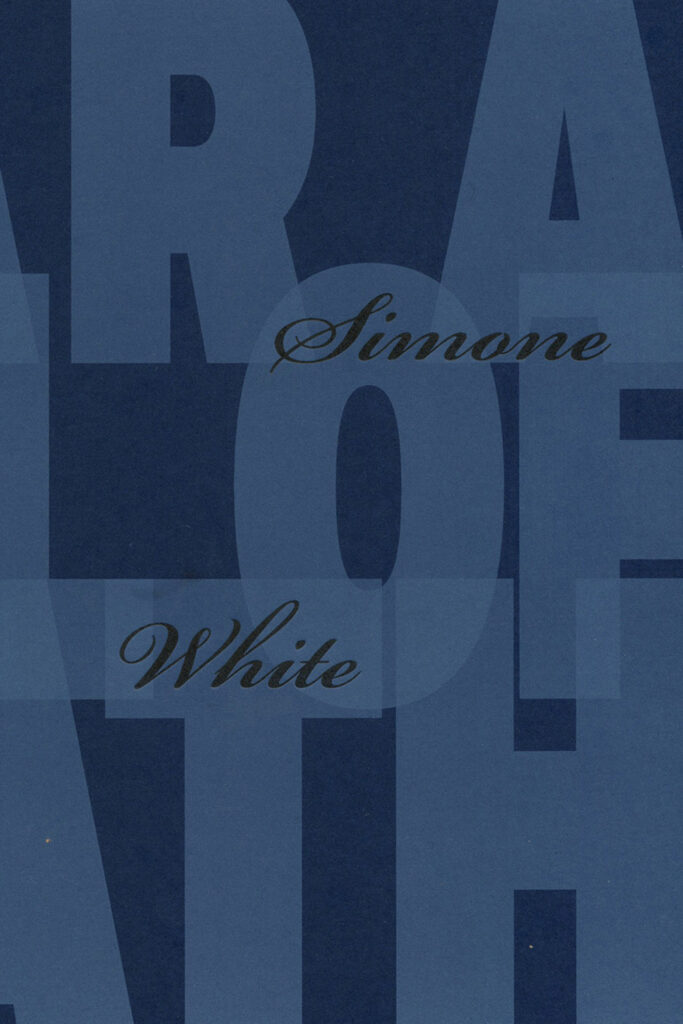
Once I started to get into more spiritual stuff, I was really into Rumi and Kahlil Gibran—people whose writing I found transcendental. There’s this poem, “The Guest House,” by Rumi. It’s about wanting all your emotions. He says: “Welcome and entertain them all! / Even if they’re a crowd of sorrows, / who violently sweep your house / empty of its furniture, / still, treat each guest honorably.” It’s so prosaic, but what he’s saying really opened my mind to thinking about my existence in a different way.
I like things that make me see the world differently. More than anything I read, my favorite author as an adult is Haruki Murakami.
Have you kept up with his newer stuff? I found a SPIN interview from just before Master of My Make-Believe where you mentioned you’d read most of his books.
The last one I read was 1Q84. I remember having that thousand-page book on my tour bus! What I love so much about Murakami is he creates these worlds that are multidimensional, and there’s magic in the way he views life. Yet he talks about things that are mundane—like every meal that he makes—in so much detail. Then you slip through a wormhole in a dimension and wind up in another world. There’s so much possibility, and you can exist in two different places at once. His writing has influenced how I like to write, in a way that’s magical about how you view reality.
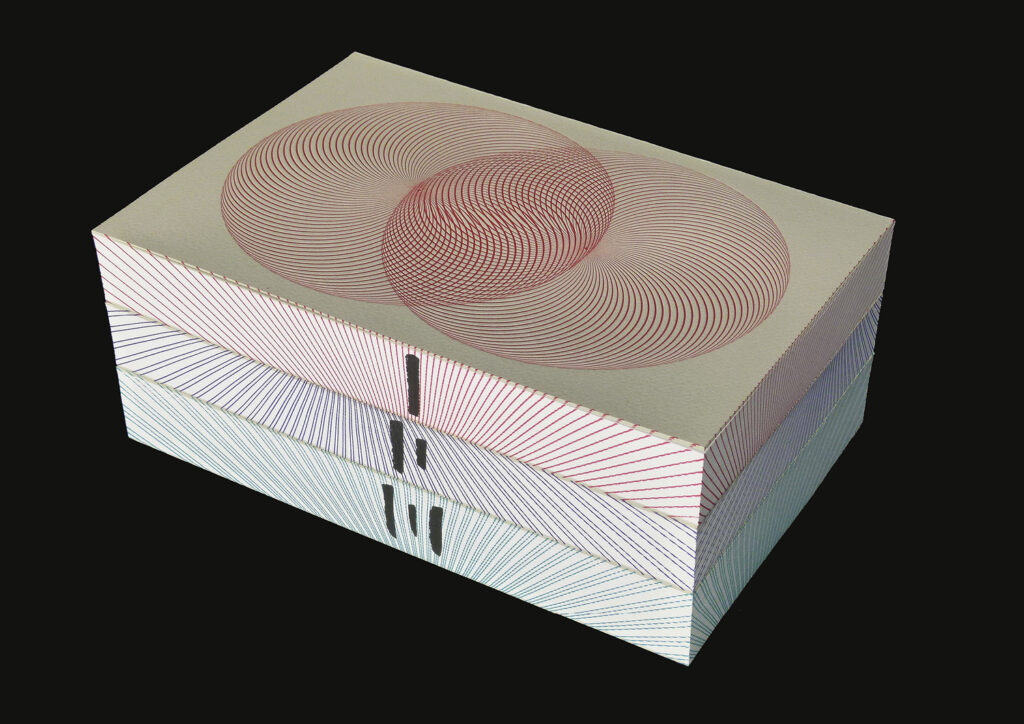
What audiobooks are you listening to?
I’ve been listening to a lot of memoirs, and books about women. This one is fiction, but I loved it: Girl, Woman, Other by Bernadine Evaristo. It goes through different women’s stories, through different generations, and issues women deal with: gender roles, sexism, abuse. It’s a powerful book. I read The Other Side of Paradise by Staceyann Chin, and we wound up talking a lot; she’s brilliant, and I love her and the book that she wrote. I read Negroland [by Margo Jefferson] recently too; I loved how she was able to tell the story of a whole cultural climate and struggle of a people through the story of her own self and family. It paints a picture of an entire society and the struggles everyone was facing.
Totally switching, I’m reading Braiding Sweetgrass by Robin Wall Kimmerer. She’s a botanist and professor. She’s also indigenous, of the Potawatomi tribe. It’s really good. I did all this research during the pandemic about climate change—in a panic. [Laughs.] She’s talking about the relationship between humans and the earth. It’s always been a mutually beneficial relationship, and we’re supposed to help take care of Earth as Earth takes care of us. Somewhere along the line, that understanding has been lost and we fell off our path. We need to understand things the indigenous people always knew about sustainability and respect for the earth. We can’t continue to consume in this way, as if it will always be there and it doesn’t matter. If you think about things that way, you treat the earth differently.
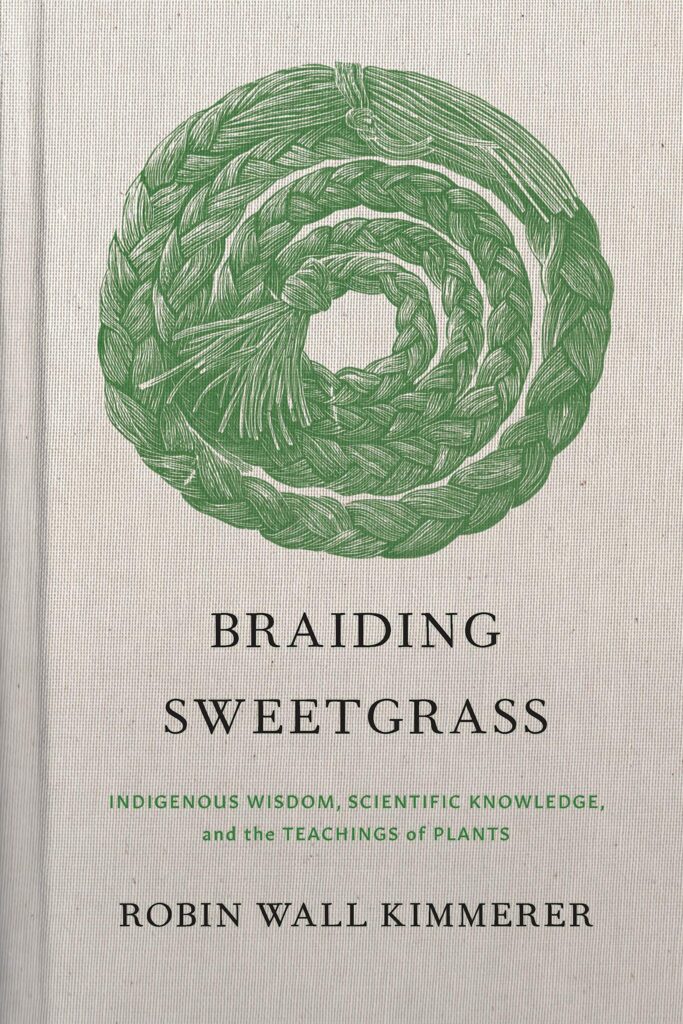
You’ve been influenced musically by your own study of music history, citing Please Kill Me and Q: The Autobiography of Quincy Jones as significant. What else has had an impact?
One of my favorite music history books was Marvin Gaye’s, Divided Soul [by David Ritz]. I remember after reading the stories I’d buy all his records—Here, My Dear, that’s the divorce record—just to know what’s happening behind the lyrics of the songs, and his struggles. My dad was the hugest Marvin Gaye fan. And when Marvin Gaye was murdered, my dad seriously didn’t speak for a week, he was so depressed. So when I finally read the book I learned a lot. I love finding out all the details about people’s lives. I remember reading a Nina Simone autobiography [I Put a Spell on You] and didn’t like it at all because it wasn’t honest. It was how she wanted herself to be portrayed; the old way is to only put your best face forward. Tell the whole story! It doesn’t take anything away from who you are and your legacy. But be honest, because then we can relate to you even more.
You’ve worked alongside some incredible visual artists. Do you collect their art books?
I do! I have books by my friends—Kehinde Wiley and Wangechi Mutu. I have some David Hockney. I used to paint when I was a kid and my earliest favorite painter was Frida Kahlo. I loved self-portraits, and I loved hers especially because they told a story of her pain and experience in life. I had the book of her journals and drawings—I love stuff like that. Gauguin I love. Of course I’ve got Basquiat and Warhol too.
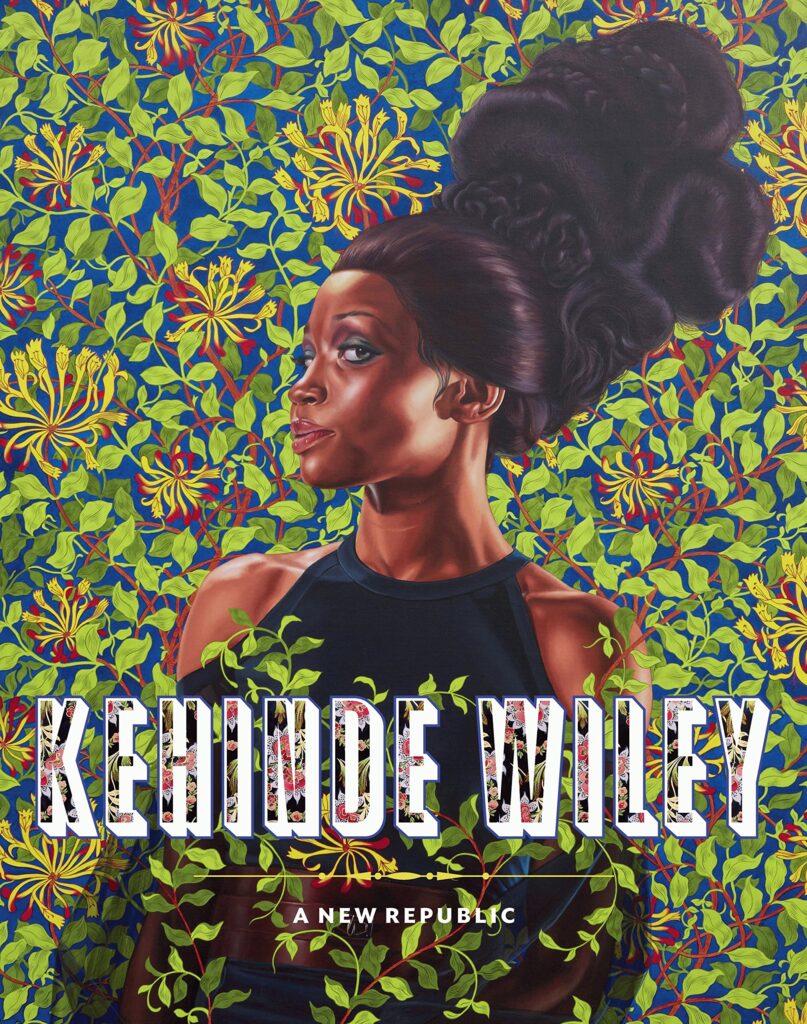
You wrote up a list of favorite books for today. What haven’t we touched on?
Another book I love so much is Fledgling by Octavia Butler. It was given to me by Ishmael [Butler] who used to be in Digable Planets but now is in Shabazz Palaces. He gave it to me because in 2009, he said, “You and your dancers remind me of this—you’re sci-fi and otherworldly.” I read the book and was blown away by this Black vampire girl. I love non-fiction, but I really love a story that goes into a mystical, magical, otherworldly place, and it ties it together with the world as we know it.

Leave a comment